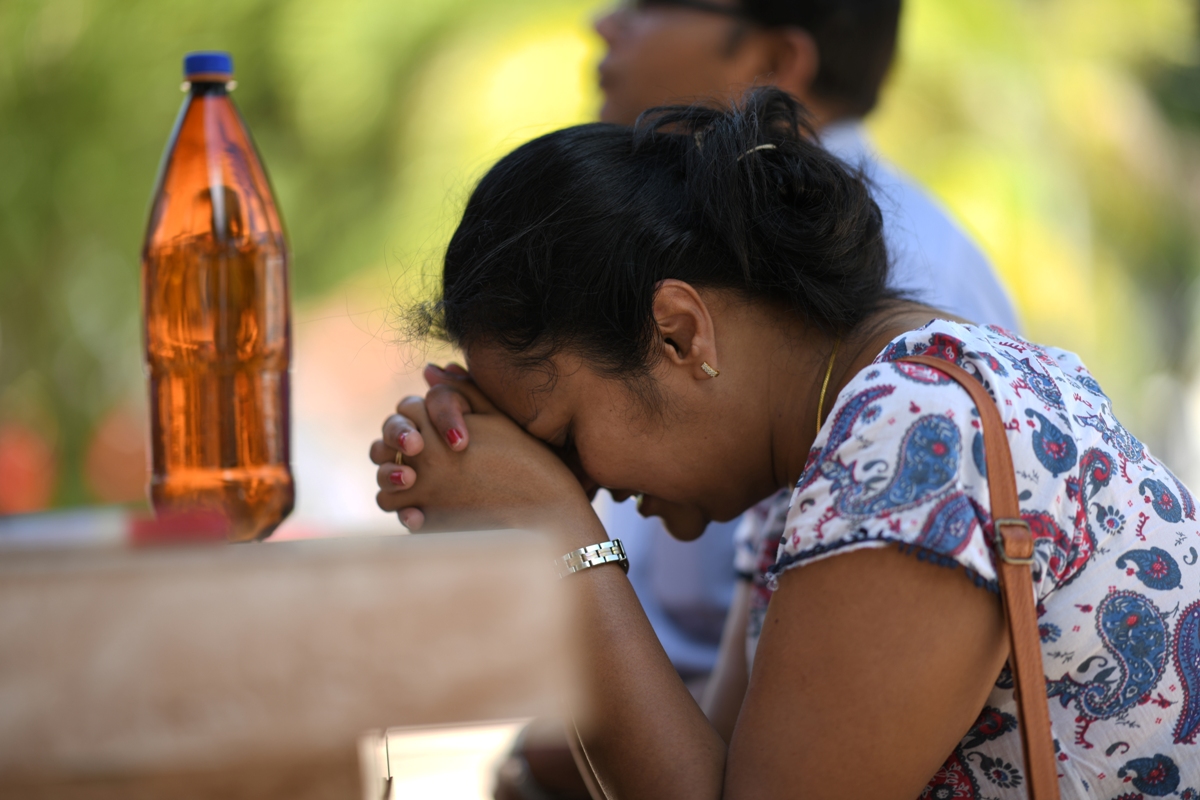A nationwide emergency will be declared in Sri Lanka from midnight on Monday following the Easter Sunday blasts. The announcement was made by Sri Lankan President Maithripala Sirisena.
“The government has decided to gazette the clauses related to prevention of terrorism to emergency regulation and gazette it by midnight,” the president’s office said in a statement.
Advertisement
The President also appointed a committee on Monday to probe the blasts that killed 290 people in a terror attack which was the worst since the end of the Sri Lankan Civil War 10 years ago.
The three-member committee will be submitting a report within two weeks. It is headed by a top court judge. At the time of the attack, President Sirisena was on a private visit to India and Singapore. He rushed back to Colombo on Monday.
Curfew will be imposed in Sri Lankan capital Colombo at 8 pm today and will continue till 4 am on Tuesday. A curfew was imposed soon after Sunday’s terror attack which was lifted earlier today.
In a bid to reduce public movement, Sri Lanka declared a two-day holiday.
President Sirisena has declared 23 April as a National Day of Mourning. Sri Lankan media reports that security forces have been asked to strengthen security at Churches and all other important locations.
The Sri Lankan President will also be holding meetings with all ambassadors and high commissioners in order to explain the current situation of the country. He is likely to request international support for Sri Lanka.
The Sri Lankan government has accused a local militant group, National Thowheed Jamath, for the attacks. All those arrested in connection with the incident are locals, the government said.
Reports in Sri Lankan media, however, state that the country’s intelligence suspects a hand of international terrorist organisations in the attack.
On Sunday, a total of seven suicide bombers carried out a series of eight devastating blasts that tore through churches and luxury hotels in Sri Lanka.
The blasts targeted St Anthony’s Church in Colombo, St Sebastian’s Church in the western coastal town of Negombo and Zion Church in the eastern town of Batticaloa around 8.45 am (local time) as the Easter Sunday mass were in progress.
Explosions were also reported from three five-star hotels — the Shangri-La, the Cinnamon Grand and the Kingsbury in Colombo.
Six Indians were among those who were killed in the blasts. Among the dead were at least 30 foreigners – all in Colombo. Reports suggest that the foreign nationals killed in attack include British, Dutch, Americans and Japanese among others.
Most of the deadly attacks in the past in the country had been carried out by the Liberation Tigers of Tamil Eelam (LTTE) which ran a military campaign for a separate Tamil homeland for nearly three decades before its collapse in 2009 after the Sri Lankan Army killed its supreme leader Velupillai Prabhakaran.









